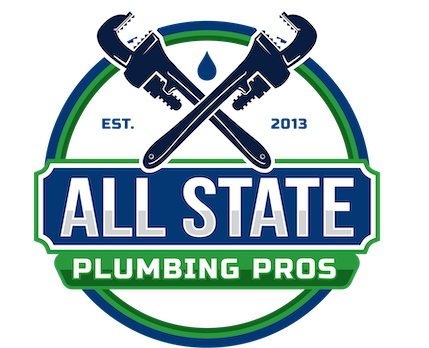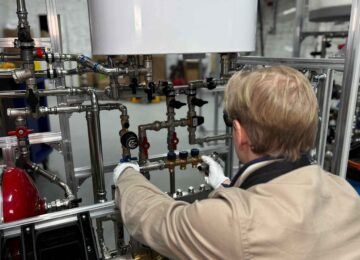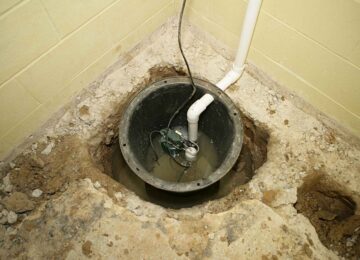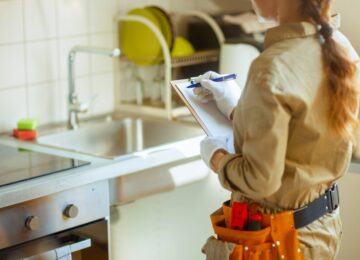Introduction to Plumbing Emergencies
A plumbing emergency can quickly spiral into a major issue if not handled correctly, and knowing when to call a plumber can help you avoid costly repairs, protect your home, and safeguard your family’s health. Whether it’s a clogged toilet or a leaking pipe, minor issues can escalate if left unchecked.
Plumbing problems often start with small warning signs: a gurgling sound in the drain, water backing up into the sink, or an unpleasant odor in the bathroom. Issues like excessive toilet paper usage or flushing feminine hygiene products can lead to clogged drains, sewer line blockages, and overflowing toilets. These not only disrupt water flow but also pose serious sanitation risks.
Recognizing when professional plumbing services are necessary helps you act quickly before damage worsens. From simple clogs to full-blown pipe bursts, a professional plumber can resolve the issue, protect your plumbing system, and give you peace of mind.
Common Plumbing Issues
Not every plumbing problem is an emergency, but many require professional attention to prevent further damage or inefficiency. Every day issues can be symptoms of larger problems in your plumbing system.
Clogged toilets and clogged drains are some of the most frequent complaints plumbers address. They can occur from flushed debris, buildup in drainpipes, or foreign objects lodged in the system. While a plunger or toilet snake may help in some cases, persistent clogs should be inspected by a plumber to rule out deeper issues like root intrusion or a sewer line clog.
Other common signs you need a plumber include:
- Leaking pipes or dripping faucets, which waste water and increase your utility bill
- Running toilets that constantly cycle due to a faulty flapper or valve inside the toilet tank
- Strange gurgling sounds from drains, which may signal blocked vents or trapped air
- Low water pressure, potentially caused by a buildup in pipes or a hidden leak
- Discolored water, which may indicate corroded pipes or contamination from lead or sediment
These problems often lead to water damage, mold growth, or damage to structural materials if left unresolved.
Signs of Plumbing Emergencies
Some issues require immediate intervention. Recognizing these signs early allows you to act fast and prevent significant damage to your home.
Plumbing emergencies can look like:
- Overflowing toilets or sinks that don’t drain, indicating blockages or failed main sewer lines
- Frozen pipes during winter that stop your water supply and may burst as they thaw
- Leaking water heaters that spill excess water around your utility area, posing both electrical and water damage risks
- Foul odors or mold growth from hidden leaks behind walls or under flooring
- Strange noises, such as banging pipes or bubbling drains, which suggest pressure imbalances or venting issues
Any issue involving sewage backup, burst pipes, or lack of running water should prompt you to call a plumber immediately. Acting fast prevents health hazards and expensive restoration work.
DIY Fixes and When to Seek Professional Help
Not every plumbing problem requires a professional, but knowing your limits is key. Attempting a DIY fix without proper tools or knowledge can make things worse.
You might safely address:
- A clogged sink using a plunger
- Minor drain clogs with a baking soda/vinegar solution or a drain snake
- A loose toilet handle or replacing a flapper inside the tank
However, deeper or recurring problems require professional plumbing services. For example, a persistent slow drain could be a symptom of a broken pipe or debris buildup far down the line. Attempting to fix it yourself without the right diagnostic tools can lead to further damage, leaks, or flooding.
If your DIY attempt doesn’t work, or if the issue comes back repeatedly, that’s a clear sign to bring in a licensed plumber who can repair the problem safely and permanently.
Preventing Frequent Clogs
One of the best ways to avoid emergency plumbing calls is through prevention. Frequent clogs often stem from everyday habits that put strain on your plumbing system.
Be mindful of what goes down your drains:
- Never flush feminine hygiene products, paper towels, wipes, or other non-flushable items
- In the kitchen, avoid pouring grease, coffee grounds, or starchy waste like rice down the kitchen sink
- Use drain screens to catch hair, soap scum, and debris in bathroom sinks and showers
It’s also helpful to run hot water down your drains weekly to flush out minor buildup, and schedule occasional cleanings with a professional plumber to keep everything flowing as it should.
Dealing with Foreign Objects in the Plumbing System
Accidents happen, especially in households with children. When a foreign object like a toy, piece of jewelry, or excessive tissue gets flushed, it can block your toilet bowl, supply lines, or main sewer line.
While you might be tempted to remove it yourself, improper attempts can push the object deeper or damage your pipes. A plumber arrives equipped with the right tools, such as inspection cameras or retrieval hooks, to locate and safely extract the item.
It’s also smart to install childproof toilet locks or teach young children not to treat the toilet as a trash bin. Taking steps now can reduce the chance of plumbing disasters later.
When to Call a Plumber Immediately
Certain plumbing issues should never wait. Call a plumber immediately if you notice:
- A burst pipe releasing water into your home
- No access to hot water, especially in colder months
- A sewer backup is causing foul odors or slow drains in multiple fixtures
- Signs of a leaking pipe behind walls, such as soft spots, discoloration, or mold
- A failed sump pump, especially during a storm
Even if you’re not sure whether it’s an emergency, err on the side of caution. Quick professional action can mean the difference between a small repair and thousands of dollars in water damage.
Choosing the Right Plumber
Not all plumbers offer the same level of experience, transparency, or availability. Choosing the right professional helps ensure your plumbing issue is resolved properly.
Look for a plumber who is:
- Licensed and insured to work in your state
- Able to provide clear estimates before the job starts
- Experienced in emergency plumbing services
- Well-reviewed by previous customers
- Willing to explain the issue and their solution clearly
Avoid any company that gives vague pricing, won’t answer your questions, or doesn’t offer guarantees. A reputable plumber values long-term relationships and your home’s safety.
Understanding Plumbing Systems
Every home has a complex network of pipes, fixtures, and appliances working together. Knowing how your plumbing system functions gives you more control over maintenance and problem detection.
Water enters your home through supply lines, and waste exits through the drain system, ultimately reaching the main sewer line or septic system. Pressure, venting, and proper material quality all affect system health.
Scheduling annual inspections and seasonal maintenance can catch early signs of damage, especially before winter, when frozen pipes are a risk. A plumber can help you understand your system and guide you in maintaining it year-round.
Conclusion
Plumbing problems can be more than just an inconvenience; they can threaten your home’s structure, hygiene, and even your safety. Recognizing when to call a plumber, understanding your system, and acting quickly can prevent major issues before they start. Whether it’s a persistent clog, frozen pipe, or sudden leak, knowing when to pick up the phone makes all the difference.
If you’re dealing with a plumbing issue or unsure whether it’s time to call a professional, don’t wait. The team at All State Plumbing Pros is ready to provide fast, reliable service across Fairfield County, CT, and Westchester County, NY. Contact us today to schedule a visit from one of our licensed plumbing experts.
FAQs
How do I know when to call a plumber?
Call a plumber when you notice persistent clogs, water damage, strange odors, or low water pressure. If the issue worsens over time or DIY fixes fail, it’s time to bring in a professional.
When to use a plumber?
Use a plumber for installation, repair, or inspection of water supply lines, drains, toilets, water heaters, and other plumbing fixtures. They’re also essential for emergencies like flooding or sewage backup.
What is the plumber’s rule?
The “plumber’s rule” typically refers to best practices in plumbing, such as maintaining proper pipe slope, using compatible materials, and ensuring code compliance. It also emphasizes respect for the customer’s property.
What to say when calling a plumber?
When calling a plumber, describe the problem clearly, mention symptoms like leaks, noises, or lack of water. Let them know how long it’s been happening and whether you’ve tried any fixes.

![When to Call a Plumber: Signs You Shouldn’t Ignore Introduction to Plumbing Emergencies A plumbing emergency can quickly spiral into a major issue if not handled correctly, and knowing when to call a plumber can help you avoid costly repairs, protect your home, and safeguard your family’s health. Whether it’s a clogged toilet or a leaking pipe, minor issues can escalate if left unchecked. […]](https://allstateplumbingct.com/wp-content/uploads/2025/07/When-to-Call-a-Plumber-Signs-You-Shouldnt-Ignore-750x420.jpg)



Leave a Reply